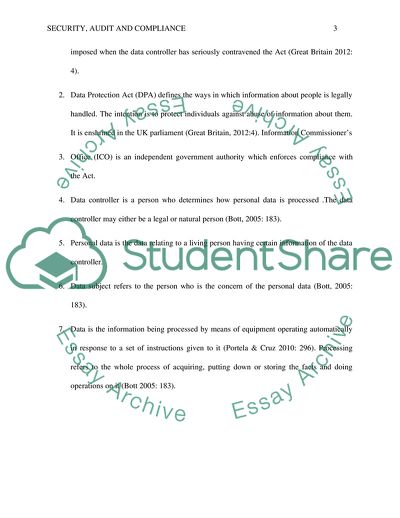Cite this document
(Security, Audit and Compliance Research Paper Example | Topics and Well Written Essays - 3250 words, n.d.)
Security, Audit and Compliance Research Paper Example | Topics and Well Written Essays - 3250 words. https://studentshare.org/information-technology/1842834-security-audit-and-compliance
Security, Audit and Compliance Research Paper Example | Topics and Well Written Essays - 3250 words. https://studentshare.org/information-technology/1842834-security-audit-and-compliance
(Security, Audit and Compliance Research Paper Example | Topics and Well Written Essays - 3250 Words)
Security, Audit and Compliance Research Paper Example | Topics and Well Written Essays - 3250 Words. https://studentshare.org/information-technology/1842834-security-audit-and-compliance.
Security, Audit and Compliance Research Paper Example | Topics and Well Written Essays - 3250 Words. https://studentshare.org/information-technology/1842834-security-audit-and-compliance.
“Security, Audit and Compliance Research Paper Example | Topics and Well Written Essays - 3250 Words”. https://studentshare.org/information-technology/1842834-security-audit-and-compliance.


